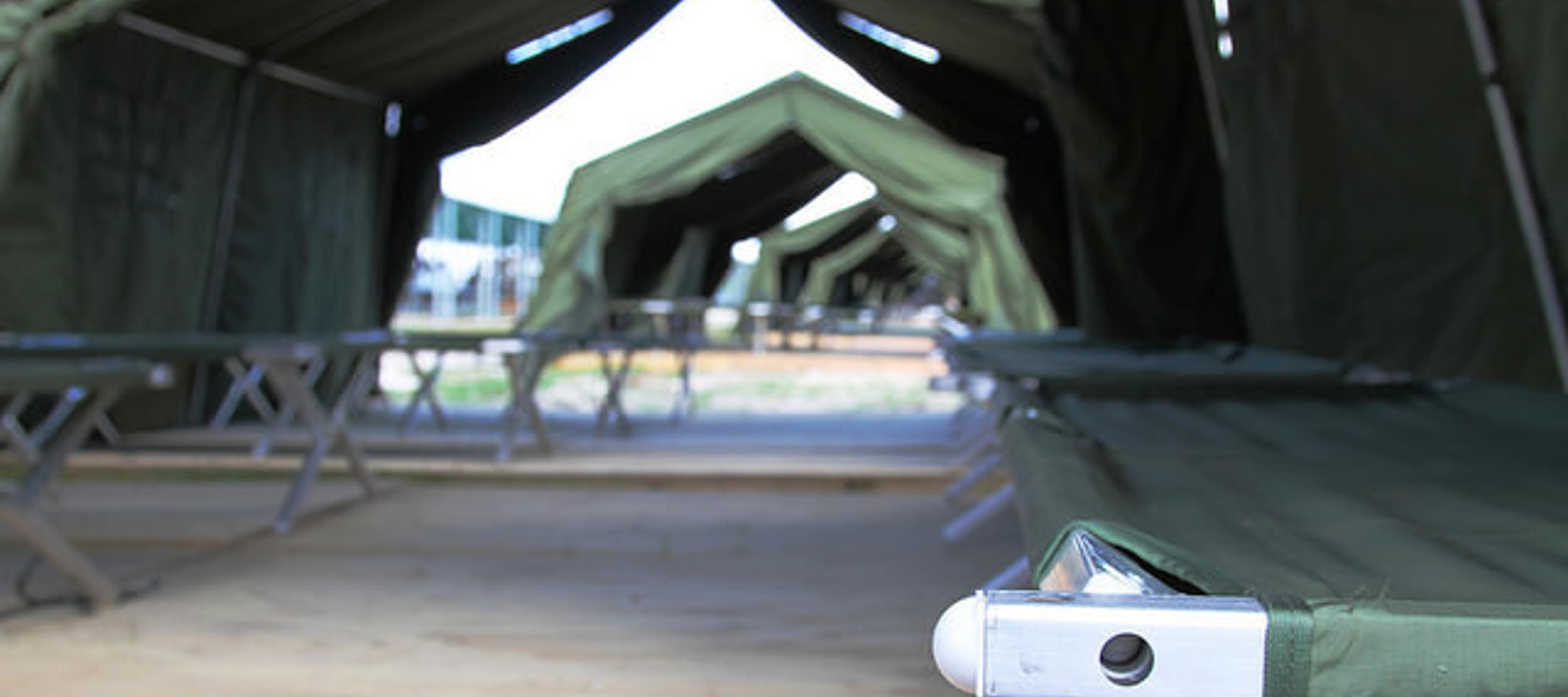Caveat Emptor – Why Companies Should Avoid Tendering for Offshore Refugee Processing
8 June 2017

In a remote corner of the Pacific Ocean, the Australian government has created an island of despair, where refugees fleeing persecution are trapped and live in appalling conditions, while companies are awarded lucrative contracts to manage their enforced and indefinite detention.
The Australian government outsources the operation of offshore refugee processing facilities to the private sector. The government's leading contractor on Nauru is Broadspectrum, a subsidiary of Spanish multinational Ferrovial. It has been running Nauru's refugee processing centre since 2012.
Seeking asylum is not a crime
The ‘crime’ for which many refugees are being sentenced to indefinite detention is that of seeking safety on Australian shores from human rights violations in the countries from which they have fled, in most cases by boat. The Australian government has acknowledged that its offshore processing system on Nauru and on Manus Island in Papua New Guinea is designed to deter people from seeking asylum in Australia even if they are genuine refugees.
The logic of criminalising asylum-seekers is perverse, because not only is seeking asylum not a crime, but it is a human right embodied in the 1951 UN Refugee Convention. Ratified by 145 State parties, this defines the term ‘'refugee’ and outlines the rights of those displaced because of persecution or conflict, as well as the legal obligations of States to protect them.
The logic of criminalising asylum-seekers is perverse, because not only is seeking asylum not a crime, but it is a human right embodied in the 1951 UN Refugee Convention.
As at 31 October 2016, of the 1,195 people who have had their claims for asylum assessed on Nauru, 941 (79%) had been found to be refugees. The equivalent figure for Manus Island is 82%. There are about a hundred women and children. More than 700 people are from Iran, and other nationalities include Sri Lanka, Pakistan, Bangladesh, Myanmar, among others, including the stateless.
Many of these refugees and people seeking asylum have turned to self-harm in the face of a life of alienation, isolation, abuse and hopelessness. Some of those interviewed by Amnesty International, such as "Yasmin" from Iran, would rather be dead. Her husband "Amir" told Amnesty last year how her mental health started deteriorating during her time on Nauru to the point that she tried to commit suicide on several occasions.
Perpetuating a system of cruelty
On the face of it, any company assisting a process that prolongs the state of torment and limbo to which these refugees are subject would appear to be in breach of international human rights standards. According to Amnesty International’s research and analysis, the functions they fulfil on behalf of the Australian government contribute to the cruel, inhumane and degrading treatment that is prevalent on both Nauru and Manus Island. Either the companies involved have not undertaken proper human rights due diligence, as required by the UN Guiding Principles on Business and Human Rights, or they have ignored the findings. Either way they are culpable.
One of the lessons from the outsourcing of offshore refugee processing is that this carries considerable legal and reputational risk for the companies involved.
As provider of ‘garrison and welfare services’ on Nauru and on Manus Island, Broadspectrum is responsible for running the Refugee Processing Centres on both islands. This includes providing operational and support services such as facilities management, clothing, food, transport, cleaning and security services, and providing recreational and educational programmes to refugees and asylum-seekers.
Enticed by lucrative contracts
Amnesty International’s report Trea$ure Island sets out the magnitude of the revenues to be gained from such activity, suggesting that some of these corporations find the business opportunity irresistible, even if they run the risk of being complicit in situations where they are contributing to perpetuating a system of cruelty and suffering.
The Australian government spends billions of dollars in maintaining its offshore processing system on both Nauru and Manus Island. Between September 2012 and February 2014, Broadspectrum provided services on Nauru under various governmental contracts with a combined value of AUD$350 million (then US$364.5 million). Broadspectrum’s current contract for garrison and welfare services on both Nauru and Manus Island – signed in March 2014 and due to terminate in October 2017 – has been amended several times over the years, both in terms of its value and scope of services provided. According to information from the Australian government’s contracts website, the combined total value of that contract is currently AUD$2.5 billion (US$1.9 billion) over three and a half years. The Australian National Audit Office has estimated that processing refugees under the current contract with Broadspectrum cost the Australian government over AUD$573,000 (then USD$427,611) per person, per year, as of December 2015.
Backing away from consequences
While these contracts have been particularly profitable for Broadspectrum and its parent company Ferrovial, they have resulted in public pressure that the company has had to respond to. Ferrovial has announced that it will not bid for further work on Nauru and Manus after its current contract ends in October 2017.
One of the lessons from the outsourcing of offshore refugee processing is that this carries considerable legal and reputational risk for the companies involved. In the case of Broadspectrum, their role on Nauru and Manus is attracting international attention and muddying the waters for other parts of the Ferrovial corporate group. Furthermore, the veil of secrecy surrounding these contracts is gradually being pierced as more information comes to light.
Complicity in such abuses is a crime
The stark reality for any companies contemplating a contract to manage such facilities is that the risk of complicity in these human rights violations is very real. International media has reported these abuses. The Australian government may bear the primary responsibility, but it is aided and abetted by the private sector, without which it wouldn’t be able to implement its refugee processing policy in this manner.
The companies involved would have known what is going on, they would be aware that the services they provide are a central part of a system whose effect is to cause mental anguish to refugees, and the only legitimate option open to them is to end their operations as soon as possible.
While it is the Australian government that is primarily responsible for creating such an outrageous system, the role of the private sector is instrumental.
For any companies that may be intending to bid for future projects, there is a clear message that they will not be able to distance themselves from the abuses that have taken place on Nauru and Manus Island, and it will very likely taint them and undermine their global business interests.
The inhumanity of processing refugees in bleak and inhospitable environments offshore, where abuses are rife, has met with condemnation from the UN and other human rights bodies in a way that should act as a call to action for all of us.
While it is the Australian government that is primarily responsible for creating such an outrageous system, the role of the private sector is instrumental. It is only when companies refuse to be associated with such abuses, regardless of the business opportunities such deals represent, that the Australian government will be forced to take steps to end the inhumanities on Nauru and Manus Island.
Image: Flickr/globalpanorama




